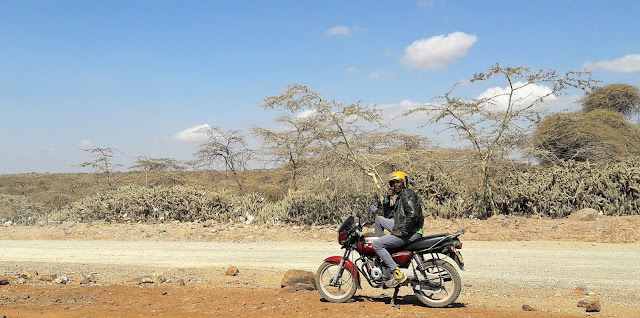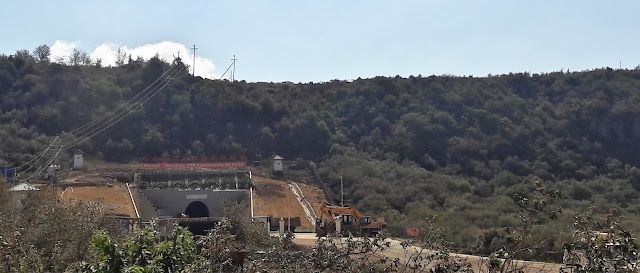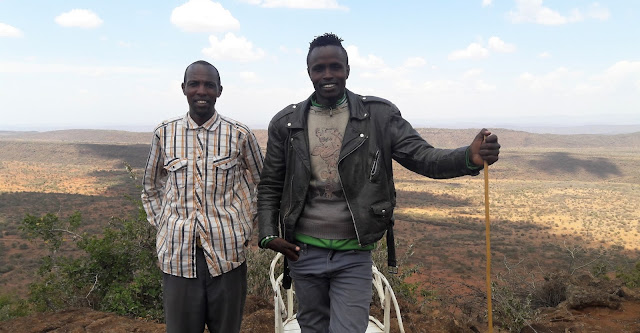Is team conflict really the primary reason for missionary attrition?
The source for this is a survey by ReMAP (Reducing Missionary Attrition Project) conducted by World Evangelical Fellowship (WEF). The results from over 500 survey responses of mission agency leaders, was printed in 1997 in
Too Valuable to Lose: Exploring the Causes and Cures of Missionary Attrition.
According to ReMAP, we can safely say: The most important non-acceptable reason as perceived by leaders of mission agencies (and some sending churches) regarding why missionaries from the US stopped working with their agencies 20 years ago was problems with peer missionaries. Regardless where it falls on a list, we know the damage and hurt that can happen when coworkers don’t get along.
In honor of the 20th anniversary of that publication, here's a different look at this subject through the lens of team relationships.
In 2003, WEA (World Evangelical Alliance, formerly WEF) conducted ReMAP II, with the results discussed in
Worth Keeping: Global Perspectives on Best Practice in Missionary Retention. Like the first one, ReMAP II was extremely well thought out and well implemented; it carried the research forward and expanded the pool of respondents to the administrators of 600 mission agencies in 22 countries, representing nearly 40,000 missionaries.
While ReMAP focused on individual reasons for attrition, ReMAP II looked at the organizational practices that lead to retention. Both add up to a more complete picture, with ReMAP II showing a drop over the last 20 years.
In 2006, Global Mapping International (GMI) developed
Engage, a workplace engagement survey designed specifically for North American field staff serving cross-culturally with missional organizations. The 2015 Engage, which surveyed over 1,700 North American cross-cultural field workers, representing seven agencies.
The findings are presented in
Thriving People: The Engage Survey 2015 Aggregate Report and are discussed in
Help Your Missionaries Thrive: Leadership Practices That Make a Difference (2016). The two works are filled with valuable information for missionaries and mission organizations.
But something is still missing —> the viewpoints of returned missionaries.
- - - - -
Given the above background, it seems we need:
(1) some new research
(2) based on the right population
(3) with a consistent set of questions and categories
(4) addressed directly to a broad base of returned missionaries
Andrea Sears is the co-founder of giveDIGNITY. Her family has been in Costa Rica for 8 years and are currently serving as the
Missionaries in Residence at John Brown University this year while on furlough.
"Like any missionary on the field, I’ve seen my share of fellow missionaries come and go. This prompted some reflection about the keys to longevity. The American church seems to be moving toward a short-term model and away from long-term missions, making this question more relevant than ever. "
[Note: The remainder of this blog post are excerpts written by Andrea.]
- - - -
Our questions to former missionaries -
What are the greatest preventable reasons that missionaries choose to return to their passport countries?
What factors need additional attention by mission agencies and missionaries themselves in setting appropriate expectations, conducting training, and actually living life in community on the mission field?
Our hypothesis
Based on previous research, our hypothesis was that the most common preventable factor influencing missionaries’ to return home is team conflict or issues with peer missionaries.
Who participated
745 former missionaries, instead of the leadership at missions sending agencies (which is how such surveys have been handled in the past). Over 70% were from the United States, but there were also people from Australia, Canada, Europe, and other places. Over 140 countries of service were represented from Africa, Asia, Australia, Europe, North America, and South America.
Ages when participants first went to the mission field
48% - 20-29
35% - 30-39
17% - 40 and above
Stats at time of the survey
20-80 years old - participants' age-range (the majority, 30%, were 30-39 years old)
9 years - average time on mission field (all participants had been missionaries)
Nine categories in survey
Family
Team/agency
Host country
Health
Expectations
Spiritual
Financial
Mental health
Other
What we found
Two categories ranked significantly higher than the others: family and team/agency. In relationship to the hypothesis, this directs our focus to the team/agency category.
What now?
An initial analysis of these results shows that unlike the results of previous studies, team conflict may not be the number one most preventable reason that missionaries choose to return to their passport countries. These results show that too little missionary care is at least equally important. In considering measures that need to be taken to avoid missionaries leaving for preventable causes, it would be useful to look at the top five factors that were rated significantly higher than the others.
Top five factors -
(1) too little missionary care
(2) lack of team member integrity
(3) lack of ability or freedom to pursue calling
(4) team conflict
(5) role confusion on the team
Note: While these five were significantly higher than the others, there wasn't a statistically significant difference between any of the five.
While these results point to some intriguing conclusions, there is still much left to discover. In this study alone, there are thousands of open-ended responses that give context and meaning to the raw data. It would be impossible to compile such rich data in such a brief post as this. What you have just read is an initial analysis of the quantitative results.
It is our hope to continue analyzing the data, now looking at the qualitative data and summarizing common themes and noting exceptional comments on each issue identified as a factor. For example, when people provided comments about their team conflict, what themes emerge that warrant attention? Ideally, this will give us more insight into what the participants meant by the answers that they selected.
In doing so, we hope to uncover valuable stories that will ultimately help missionaries better serve and be served in the future.
- - - -
My sources for this blog post:
- April 2018 - http://www.alifeoverseas.com/closer-to-the-truth-about-current-missionary-attrition-an-initial-analysis-of-results/
- November 2017 - http://www.alifeoverseas.com/why-do-missionaries-leave-the-field-help-us-find-out/
- July 2017 - http://www.alifeoverseas.com/is-conflict-with-teammates-really-the-top-reason-for-missionaries-leaving-the-field/











































